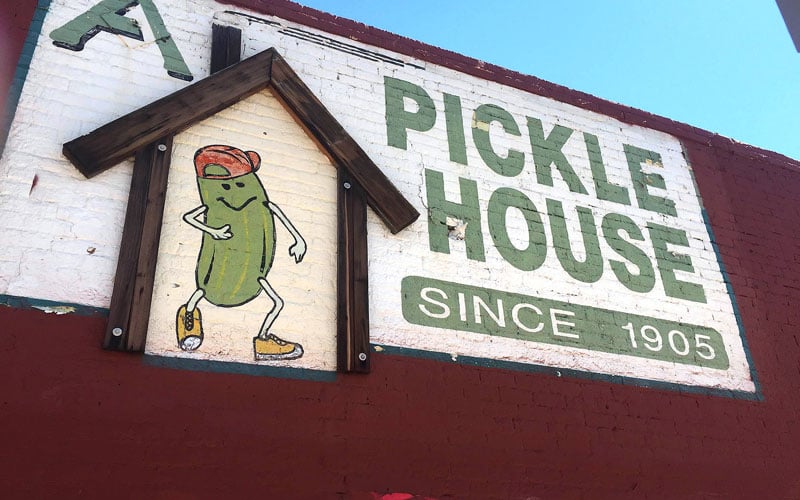
Chicanos por la Causa created the Pickle House project to offer consulting and modern technology to people looking to start their own businesses who would otherwise would not have access to resources. (Photo by Alexa D’Angelo/Cronkite News)
The number of Hispanic businesses in Arizona has grown by 70 percent in recent years, and a new Phoenix incubator, the Pickle House project, aims to help even more Latino entrepreneurs succeed.
“I would have really benefitted from a space to work in,” Carla Chavarria said. “Starting your own business, you can’t work at home and don’t have the funds to rent a space so it’s great that (Chicanos por la Causa) is offering a workspace.”
Chavarria, owner of YCM Marketing, a multicultural marketing firm focused on millennials, said she hopes this incubator will instill a want in the Hispanic community to become innovators.
Chicanos por la Causa created the Pickle House project to offer consulting and modern technology to people looking to start their own businesses but who would otherwise would not have access to resources.
The organization is using a $3 million grant from the Economic Development Administration and $50,000 from a workforce development competition to renovate the building that once housed a pickle distribution company.
Some of the funds will pay to renovate Arnold’s Pickle House and turn the historical Phoenix building into a small-business incubator.
“The family that owned Arnold’s Pickle House was about to sell, and we really liked the property,” said Andres Contreras, vice president of acquisition and development at Chicanos por la Causa Phoenix.
The 33,000-square-foot building will house workspace for innovators and small business owners to develop their ideas and get the support they need.
“We expect nothing but a positive economic impact,” Contreras said. “We hope to have it up in running by spring 2016.”
Entrepreneurs can apply for a space at the Pickle House incubator, and the organization is now accepting applications. Contreras is hopeful more Latinos in the Phoenix area will bring their ideas to the incubator because they trust the organization. The ultimate goal is to create more small businesses to help reduce the high unemployment rate among Latinos in Arizona.
“Frankly, I wish there were 10 of these incubators,” said James Garcia, director of communications and public policy at the Arizona Hispanic Chamber of Commerce. “It is extremely valuable to the community.”
The number of Hispanic-owned businesses grew 70 percent from 52,667 to 89,673 between 2007 and 2012. Based on the compounded growth trend for that period, there are now estimated to be more than 123,000 Hispanic-owned firms in Arizona, according to a recently released DATOS report.
The number of businesses owned by Hispanic women in Arizona more than doubled between 2007 and 2012 from 19,367 to 41,843. Based on the compounded growth trend for that period, women now own 54 percent of Hispanic-owned businesses in Arizona, according to the DATOS report.
In the last eight years the number of Hispanic-owned small businesses in Arizona has almost doubled, but gross revenue per year has decreased.
“We believe that the revenue streams have dissipated due to the recession and actually because of the growth of the number of small businesses,” Garcia said.
“A lot of these businesses are just starting up, and in the first couple years they aren’t making that much money because many of them don’t have the capital to get a bank loan,” Garcia said. “So those numbers reflect a large amount of businesses not making that much money.”
Arizona’s unemployment rate is 8.7 percent for Hispanics, compared to 6 percent overall.
“An incubator like this would give these businesses access to technologies and money that they wouldn’t otherwise have,” he said.
A lot of Hispanic-owned businesses started during the recession.
“People lost their jobs and needed to make ends meet so a lot of them ended up forming their own LLC and operating out of their homes,” Garcia said.
Multiple startups are in talks with Chicanos por la Causa to use the Pickle House project, which will opens its doors in the spring.
“In 10 years, some of these businesses can be major business,” Garcia said.